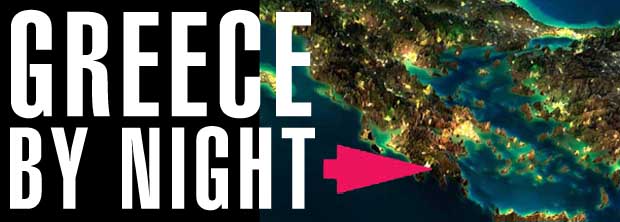June 17, 2011
What if Greece decides to not be 'rescued'?
Alen Mattich at the Wall Street Journal compares the Greek situation to the sovereign default that Argentina went through, and wonders if the greeks might prefer something similar versus the brutal pressures of austerity:
"Greeks are starting to question whether there might not be an easier way out of their crisis. And inevitably, Argentina's experience a decade ago has been attracting plenty of interest.
In the three years leading up to its crisis the Argentine economy struggled, contracting a total of 8.4% by the end of 2001. Strains became so great that the country defaulted on its sovereign debt, causing its economy to slump another 11% in 2002. But the unshackling of its currency from the dollar and subsequent devaluation also reignited growth. Since its 2002 low, Argentine gross domestic product will have expanded by an average annual 7.4% by the end of this year, according to IMF data. Crucially, Argentine output was back above its previous peak within three years of default.
Compare this with Greece's prospects. The IMF forecasts the Greek economy will have contracted 9.3% from its 2008 peak by the end of this year. Although the IMF expects Greece to start growing again next year, that is difficult to believe. The one constant of this crisis has been that all forecasts for Greece have been overly optimistic. Worse still, once Greece starts to grow, it is expected only to do so at an anemic rate of around 2% per year. By the end of 2016, the Greek economy will only just be back to end-2008 levels.
Greeks might well decide an Argentine solution is the only real option. In other words, an exit from the euro, default and devaluation. And maybe that's what the market is already anticipating.
Barry Eichengreen, an economist at the University of California, Berkeley, famously argued that a euro-zone country couldn't leave the single currency because to do so would trigger "the mother of all financial crises." Long before the long political process necessary for any euro-zone country to leave the single currency was concluded, investors would have voted with their wallets. They'd dump the country's sovereign debt and flee its banks.
But this is pretty much what has already happened to Greece. Two-year Greek debt yields 28% while 10-year bonds are trading at less than half of face value. And for months now, depositors have been pulling funds out of Greek banks. Only the lifeline of yet more EU and IMF loans is keeping Greece in the euro."
The speculation in Mattich's article goes on to spell out what could happen if Greece said "Yawseu" to the EU: enormous concessions would immediately be offered from the German-led faction, including debt-forgiveness, and the consequences afterward would mean dealing with the other debt-strapped nations of Europe who are in line to face what the Greek situation is today. The result would be the end of political careers across Europe as voter reaction to the mess would put a stop to the endless (and costly) dodging of the fiscal realities.



Greece's Golden Visa program


